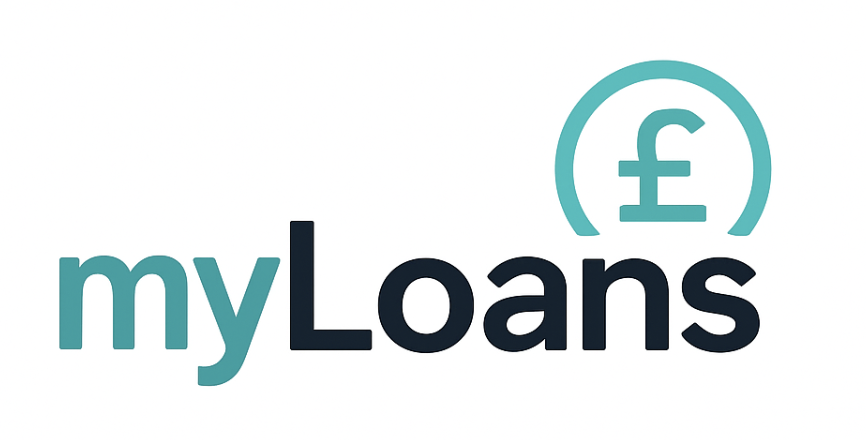How to Use a Car Finance Calculator
Car finance calculators are online tools that help you estimate your monthly car finance payments. By inputting basic information such as the loan amount, interest rate, and agreement length, you can get a clear picture of what you can afford and compare different finance options.
Car finance calculators work by using formulas that take into account the amount borrowed, the interest rate, and the length of the agreement. Some calculators also factor in additional costs such as fees or insurance, giving you a more accurate estimate. Understanding how these calculators work helps you make better financial decisions before committing to car finance.
There are different types of car finance calculators. Basic calculators simply provide a monthly repayment estimate. More advanced ones can show how much of each payment goes towards interest versus the amount borrowed, or allow you to model different interest rates and agreement lengths to compare deals.
Why Use a Car Finance Calculator?
The main benefit of using a car finance calculator is its ability to help you budget effectively. By seeing your estimated monthly repayments upfront, you can work out what fits within your household finances. It also allows you to compare different loan or finance offers, helping you find the most cost-effective option.
Key Terms You’ll Need to Understand
-
Loan Amount / Finance Amount – The amount you borrow to buy the car, after deducting your deposit and any part-exchange. This may also include fees added to the finance agreement.
-
Deposit – The initial sum you pay upfront. A higher deposit reduces the amount borrowed, lowering monthly repayments and the total interest payable.
-
Interest Rate / APR – The cost of borrowing, expressed as an annual percentage rate. In the UK, lenders must display the Representative APR so you can compare deals fairly.
-
Agreement Length (Loan Term) – The time you have to repay the finance, usually between 24 and 60 months. Longer terms lower the monthly payment but increase total interest.
-
Monthly Payment – The fixed amount you repay each month, covering both interest and the amount borrowed. This must fit comfortably within your budget.
For specific products like Hire Purchase (HP) or Personal Contract Purchase (PCP), calculators may also show the optional final payment (balloon payment) if you plan to own the car at the end of the agreement.
What to Gather Before Using a Calculator
-
Car price – The total cost of the vehicle.
-
Deposit amount – How much you can afford to pay upfront.
-
Part-exchange value – If you’re trading in a vehicle, factor this in.
-
Estimated APR – Based on your credit profile and the lender.
-
Agreement length – The number of months you want to spread payments over.
-
Additional fees – Any charges the lender may include in the agreement.
How to Use the Calculator
-
Enter the finance amount – Subtract your deposit and part-exchange value from the car’s price.
-
Set the interest rate – Use the representative APR from lenders or comparison sites.
-
Choose the agreement length – Typically between 2–5 years.
-
Add your deposit – Enter the upfront amount you plan to put down.
-
Include fees – If applicable, add any admin or arrangement charges.
The calculator will then provide an estimated monthly repayment.
Interpreting the Results
-
Monthly Payment – Check if the amount is affordable within your monthly budget.
-
Total Interest – Review how much interest you’ll pay over the full term.
-
Effect of Deposit – See how paying a larger deposit reduces both monthly payments and interest.
-
Agreement Length Impact – Compare short vs. long terms to balance affordability with overall cost.
Try adjusting the numbers (deposit, APR, agreement length) to find the most suitable option.
Car Finance in the UK – Key Options
-
Hire Purchase (HP) – You pay monthly instalments to eventually own the car.
-
Personal Contract Purchase (PCP) – Lower monthly payments with an optional final “balloon” payment if you want to own the car at the end.
-
Personal Loan – A standard loan from a bank or lender, often unsecured, that can be used to buy the car outright.
-
Secured Loan / Homeowner Loan – Tied to an asset (e.g. property) and usually lower interest, but riskier.
Tips for Getting the Best Deal
-
Check your credit score – A better score can help you access lower APRs.
-
Shop around – Compare offers from banks, car finance companies, and dealership finance.
-
Consider pre-approval – Getting pre-approved can give you clarity on affordability before you step into the showroom.
-
Negotiate terms – Don’t be afraid to negotiate APR, deposit, or fees.
-
Read the fine print – Ensure you understand all terms, especially balloon payments and early repayment charges.
Conclusion
A car finance calculator is a valuable tool to help you budget, compare finance products, and avoid overstretching yourself. By entering accurate figures and exploring different scenarios, you can approach car buying with confidence. Whether you choose PCP, HP, or a personal loan, using a calculator ensures your car purchase is financially sustainable and tailored to your circumstances.
Alternatives to Payday Loans | Safer Borrowing Options
Payday loans are often marketed as a quick fix for cash emergencies, but they are not the only option available. Whether you’re facing an unexpected bill, car repair, or temporary cash shortfall, there are several alternatives to payday loans that may offer lower...
Payday Loans with Bad Credit | Direct Lender Options
If you’ve been refused credit elsewhere and are wondering whether you can still get a payday loan with bad credit, you’re not alone. Thousands of people in the UK search every month for options like “payday loans with bad credit” or “direct lender payday loans”. While...
Personal Loan Debt Consolidation UK – Is It Right for You?
Juggling multiple credit cards, overdrafts, or loans can be stressful and expensive. A debt consolidation loan allows you to combine everything into a single monthly repayment, often at a lower interest rate. In 2025, UK lenders from high street banks to online...
Emergency Loans UK – How to Borrow Fast in 2025
When an urgent expense hits — like car repairs, medical bills, or a broken boiler — quick access to funds can be essential. In 2025, emergency loans in the UK provide a way to borrow fast, with some lenders offering same-day decisions and payouts. This guide explains...
Top 10 Personal Loan Providers UK 2025 – Rates, Features & Eligibility
The UK personal loan market in 2025 offers more choice than ever, with banks, supermarkets, online lenders, and credit unions all competing for borrowers. The best deal for you depends on your credit score, loan size, and repayment term — but comparing providers side...
Best Debt Consolidation Loans UK 2025 | Top Options
Managing multiple debts can feel overwhelming, especially with credit cards, overdrafts, and personal loans all charging different interest rates. A debt consolidation loan can simplify your finances by rolling everything into one fixed monthly repayment — often at a...
Best Bad Credit Loans UK 2025 – Top Lenders Compared
Having a poor credit score, CCJs, or past defaults doesn’t mean borrowing is out of reach. In 2025, several UK lenders specialise in products designed for people with bad credit — offering smaller loans, flexible repayment terms, and eligibility checks that won’t harm...
Home Repair Loans UK – How to Cover Unexpected Costs in 2025
A leaking roof, broken boiler, or urgent plumbing issue can quickly turn into an expensive problem — often when savings aren’t available. In 2025, home repair loans in the UK provide a way to spread the cost of essential fixes into manageable monthly repayments. This...
Green Energy Loans UK – How to Finance Eco-Friendly Home Improvements in 2025
Eco-friendly upgrades such as solar panels, insulation, heat pumps, and EV chargers can cut energy bills and boost property value — but they require a significant upfront investment. In 2025, green energy loans in the UK provide a way to spread the cost of sustainable...
Moving House Loans UK – How to Cover Relocation Costs in 2025
From deposits and removal vans to solicitor fees and new furniture, moving house in the UK can quickly add up to thousands of pounds. Not everyone has savings set aside to cover these costs upfront. In 2025, moving house loans in the UK provide a way to spread...
Education Loans UK – How to Fund Studies and Professional Courses in 2025
Not all education in the UK is covered by government student finance. Postgraduate degrees, professional qualifications, and private training often require self-funding — with tuition fees and course costs running into thousands of pounds. In 2025, education loans in...
Holiday Loans UK – How to Spread the Cost of Travel in 2025
Holidays can be some of the most rewarding experiences of the year, but they often come with a price tag that’s hard to cover upfront. From flights and hotels to all-inclusive packages and once-in-a-lifetime trips, the costs can add up quickly. In 2025, holiday loans...
Best Personal Loans UK 2025 – Top Lenders Compared
The UK personal loan market in 2025 is more competitive than ever, with high street banks, supermarkets, online lenders, and credit unions all offering products to suit different needs. Choosing the right provider can save you hundreds in interest and ensure...
Medical Loans UK – How to Finance Healthcare Costs in 2025
While the NHS covers most essential treatment, waiting lists, private care, and specialist procedures mean many people face out-of-pocket medical expenses. From dental work and fertility treatment to cosmetic surgery and urgent private healthcare, costs can run into...
Car Loans UK – Personal Loan vs Hire Purchase vs PCP in 2025
Buying a car in 2025 usually means more than just choosing the right vehicle — it also means deciding how to pay for it. In the UK, the three main options are a personal loan, hire purchase (HP), or personal contract purchase (PCP). Each has its own advantages,...

















